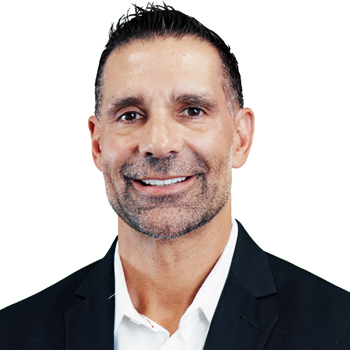Select your time!
My Account
Traumatic Brain Injury

Brain & Cognitive Health
What is Traumatic Brain Injury?
Traumatic Brain Injury (TBI) which includes concussions and post concussion syndrome (PCS), are nondegenerative insults to the brain from external sources. This can lead to temporary or permanent impairment of cognitive, physical, and psychosocial functions. PCS is a condition that is typically associated with a head injury that may be categorized as a concussion or a mild traumatic brain injury. In general terms, post-concussion syndrome, or PCS, is a medical problem that persists for a period of time after a head injury has occurred. The causes of TBI are numerous and include accidental falls, sports injuries, motor vehicle accidents and any other form or accident/injury that leads to head trauma.
TBI is one of the most devastating injuries experienced by military personnel, as well as the general population, and can result in acute and chronic complications and a leading cause of cognitive impairments. Approximately 1.5 to 2 million adults and children suffer a TBI each year in the United States. Many of these cases are considered concussions, which is a mild TBI and often does not require an admission to the hospital.
The Centers for Disease Control and Prevention (CDC) define a TBI as “a disruption in the normal function of the brain that can be caused by a bump, blow, or jolt to the head, or penetrating head injury.”
Those who survive a brain injury can face lasting effects in their physical and mental abilities as well as emotions and personality. Most people who suffer moderate to severe TBI will need rehabilitation to recover and relearn skills.
TBI can have a serious and lasting impact on a person’s mental and physical health and often contributes to mental illness such as depression and anxiety. Not everyone with TBI will experience mental illness, but a high percentage will develop symptoms associated with one or more mental illnesses making the trauma that much more impactful. Therapies that can provide improvement to those suffering from TBI can have a major impact on quality of life.
Can it be Treated?
Yes.
Traumatic brain injury (TBI) is a challenging disease process, both to diagnose and treat. Fortunately, more than 85% of TBI that is medically treated is considered mild TBI (concussion) and most patients are able to recover from their injuries. Severe TBI require immediate critical interventions and treatment, but the long- term management of the secondary symptoms and ailments often go untreated and poorly managed.
We are fortunate that our central nervous system (CNS) retains an innate ability to recover from some brain injuries through several compensatory mechanisms. The basis of recovery stems from neuroplasticity, defined as the ability for brain circuits to make necessary change to survive and heal.
Long-term Management of TBI
Primary guidelines for treating TBI deal only with initial management and stabilization but fail to highlight several opportunities to treat the secondary injury cascades that is critical in preventing trauma induced neurodegeneration. Unfortunately, limited emphasis has been placed on targeting these pathways to prevent disease progression and improve quality of life.
Over recent years there is mounting evidence or neuroplasticity and neural regeneration in the adult central nervous system. There are several exciting lifestyle, supplementation and pharmacologic therapies to enhance the regenerative process of the brain after TBI. These therapies target processes such as neurogenesis (growth and development of nervous tissue), angiogenesis (the growth and development of new blood vessels), and synaptic remodeling (regeneration of nerve transmission) and inflammation reduction to improve brain function.
Traumatic brain injury (TBI) which includes concussions and post concussion syndrome (PCS), are nondegenerative insults to the brain from external sources.
It’s Not All Physical - The Importance of Mental Health.

 US-Licensed Medical Providers & Pharmacies
US-Licensed Medical Providers & Pharmacies
